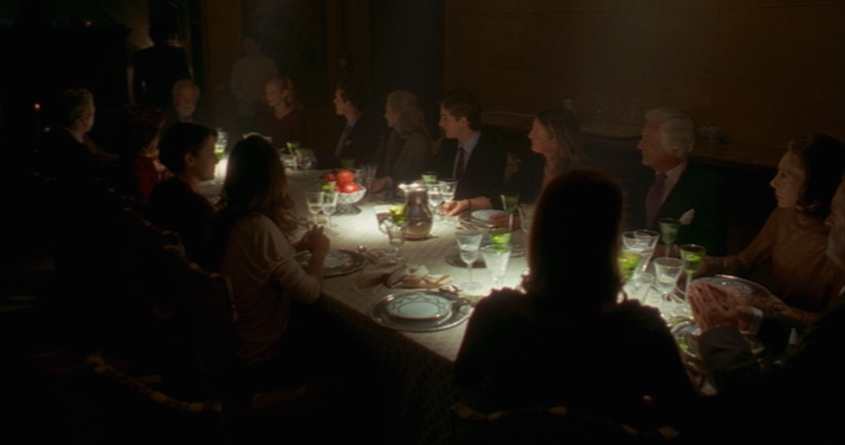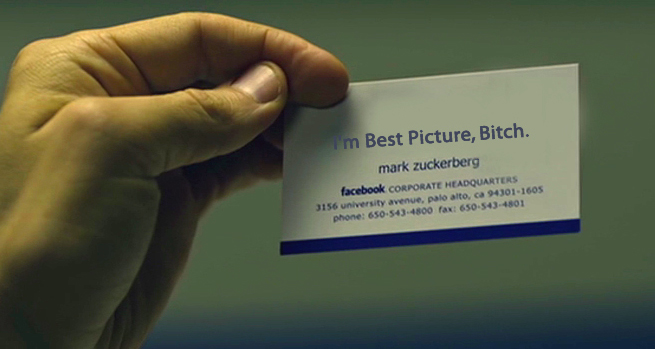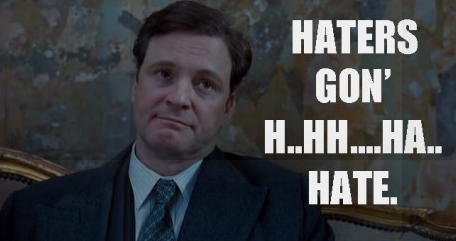Introducing... Armie Hammer
 Sunday, August 28, 2011 at 8:01PM
Sunday, August 28, 2011 at 8:01PM 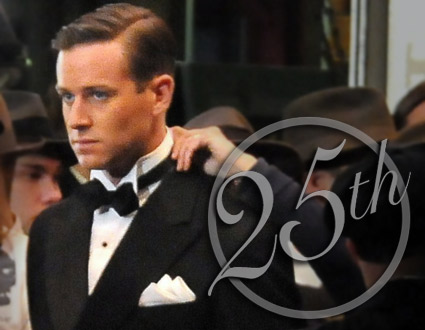 Let's celebrate the Quarter-Century mark of one Armie Hammer... (happy birthday!) also known as Armand Douglas Hammer. 'He's 6'5", 220, and there's two of him.' Well, actually just one. But his twinned Social Network role as Cameron and Tyler, "the Winklevii", sure doubled tripled quadrupled okay greatly multiplied the size of his acting career. Hammer has the Prince Charming role in Tarsem Singh's upcoming Untitled Snow White picture but we'll next see him in Clint Eastwood's J. Edgar as Clyde Tolson, the alleged longtime lover / official longtime employee of Leonardo DiCaprio's J Edgar Hoover. So there's two of Hammer this time too in a sense.
Let's celebrate the Quarter-Century mark of one Armie Hammer... (happy birthday!) also known as Armand Douglas Hammer. 'He's 6'5", 220, and there's two of him.' Well, actually just one. But his twinned Social Network role as Cameron and Tyler, "the Winklevii", sure doubled tripled quadrupled okay greatly multiplied the size of his acting career. Hammer has the Prince Charming role in Tarsem Singh's upcoming Untitled Snow White picture but we'll next see him in Clint Eastwood's J. Edgar as Clyde Tolson, the alleged longtime lover / official longtime employee of Leonardo DiCaprio's J Edgar Hoover. So there's two of Hammer this time too in a sense.
Just for fun given his newness on the scene, I thought we'd look at how Armie has been introduced in each of the feature films he has made thus far (excluding Billy Graham the Early Years which I couldn't find. Inbetween the first few features andThe Social Network he had recurring guest roles on Gossip Girl and Reaper but we've seen neither television show.)
Introducing Armie Hammer in...
... Flicka (2006)
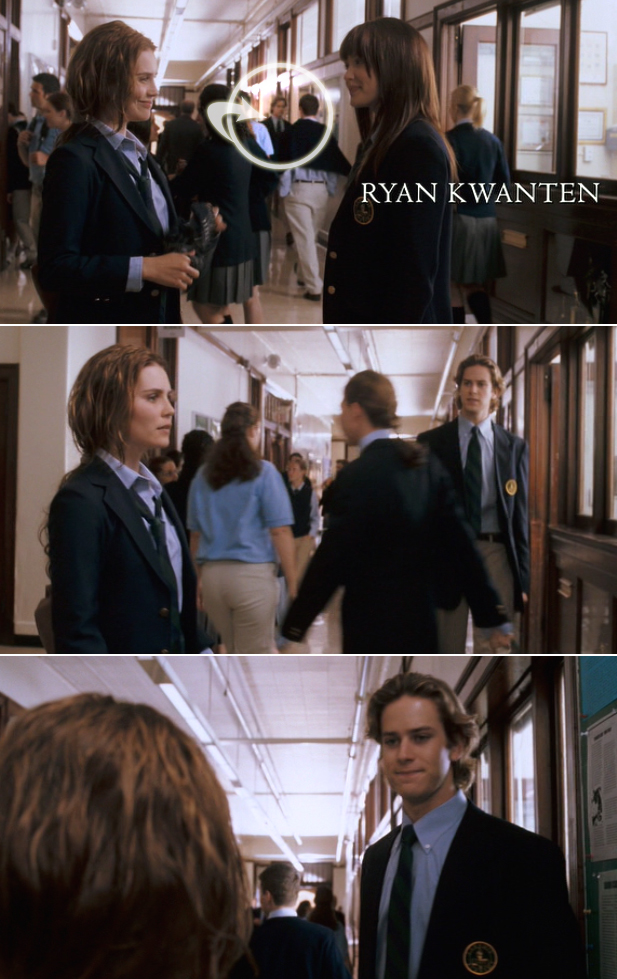
In Armie's film debut you can see him walking down the school hallway as "Male Prefect" as the credits are still going. In just seconds he's right near the camera and Alison Lohman is looking up at him. Them's long legs; tall people walk fast.
He says.
Catherine McLaughlin, you need to come see the headmaster.
And that's it! The whole role. Movie line = SAG card. In the credits he's sandwiched between a couple people who actually get names "Mrs Masterson" and "Gracie" just before the rodeo announcers, puppeteers and stuntmen. Auspicious beginnings.
... Blackout (2008)
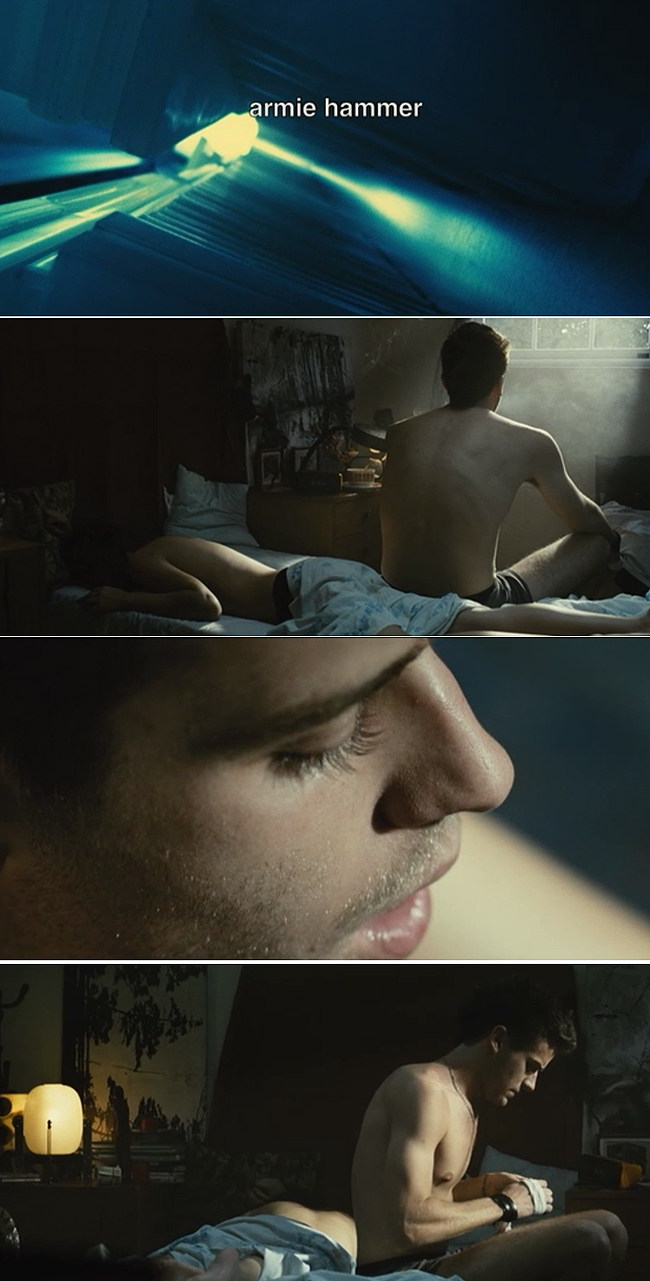
Just two years later he gets his own title card, third billed, as "Tommy" in an indie thriller about three people trapped in an elevator. He's introduced mysteriously, his back turned away from the camera. Maybe he's killed the girl in the bed behind him? It's unclear but her back has some weird bloody marks on it and he's wrapping his own bloody fist. And then he dresses and loots her apartment (not nice!) before heading out to jump on his motorcycle. Armie abandons his usual preppy film look. It's amazing what a difference a haircut, earring, and tattoos can do for your look.
... Spring Breakdown (2009)
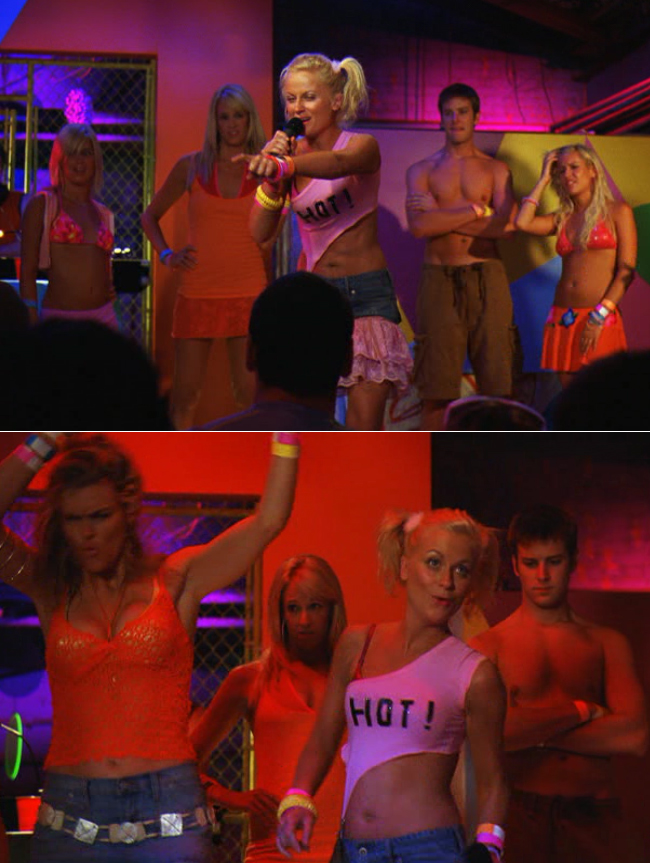
Amy Poehler to Crowd: We're going to blow your mind with a little thing called Electric Slide."
Armie is back to namelessness in his next film as "Abercrombie Boy". He appears out of focus and all judgey in the background with one of "the Sevens", the mean sorority girls that Amy Poehler's 35 year old dog trainer is hanging with. But he eventually cheers up and starts dancing; no lines.
In the scrolling credits Armie appears between "Teen Dude" and "Hookers" (LOL) but despite the esteemed company he's keeping he does actually gets to share Amy Poehler's actual title card wherein she directly adresses him and then tongues him.

You are a pretty puppy."
Shouldn't he have have been credited as "Poehler's Pretty Puppy" instead of "Abercrombie Boy"?
... The Social Network (2010)
EXT. CHARLES RIVER - DAWN
The Harvard Crew is practicing on two-man sculls. There are three baots that are running roughly even with each other and the two-man crews are rwoing with all they've got. We're gliding along with them in the water --
A CREW MEMBER
Those guys are just freaking fast.And we PULL BACK TO REVEAL that there's a fourth boat which is already five boat lengths ahead of the other three.
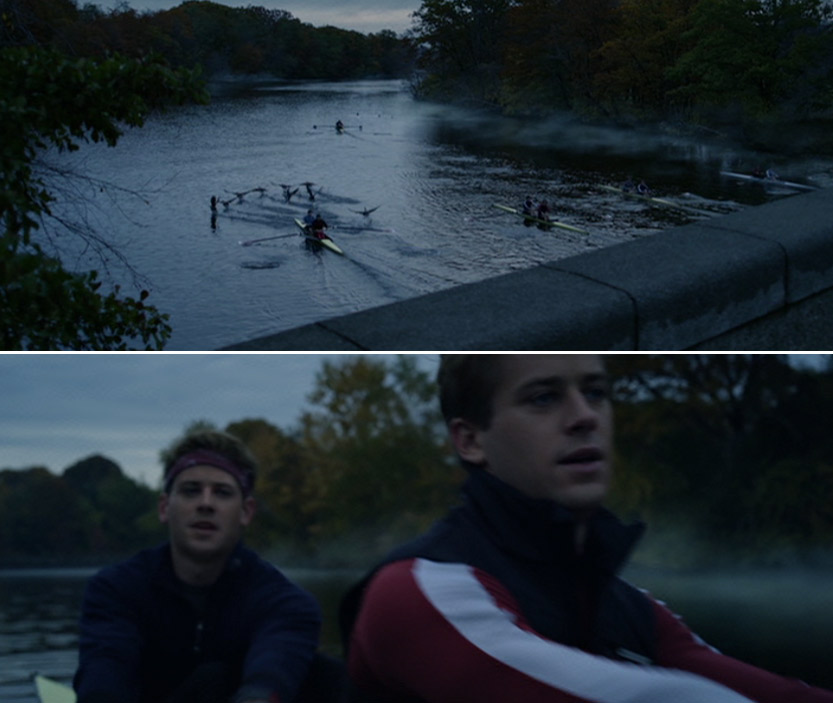
The fourth boat is being crewed by CAMERON and TYLER WINKLEVOSS -- identical twins who stepped out of an ad for Abercrombie & Fitch.
They know that the others aren't in their class and even though they're highly competitive athletes, they don't like showing anyone up, least of all their teammates.
CAMERON
Is there anyway to make this a fair fight?TYLER
We could jump out and swim.CAMERON
I think we'd have to jump out and drown.
Oh those smug Winklevii... Their Ivy League / Human Specimen superiority established we immediately cut to the news of a real competitor. The rest is movie (and legal) history.

When did your eyeballs first meet Armie Hammer? Are you looking forward to further introductions?



